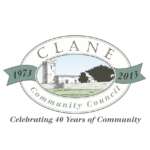Aromatherapy is a form of complementary medicine. Aromatherapists uses essential plant oils and aromatic plant extracts to improve a client’s mood or health.
A little bit about essential oils
Essential oils are, well, essential to aromatherapy. These are plant oils from trees, shrubs, herbs, grasses and flowers. Essential means essence – that is, concentrated. It takes between 2,000kg to 4,000kg of rose petals to make a kilogram of rose oil. That’s very concentrated!
Each oil has unique properties and different effects. Basil oil sharpens concentration and relieves headaches. Black pepper oil helps circulation, while lavender, tea tree and sandalwood are antiseptic.
The aromatherapist can use oils separately or combine them. In addition, the therapist can use the oils in a number of ways. These include massage, inhalation, baths, compresses and skin preparations.
The history of aromatherapy
Aromatherapy has been around for a very long time. Around 6,000 years ago, the Egyptians used essential oils for medicinal purposes, for massage and to preserve the flesh of mummies. The ancient Indians, Chinese, Greeks and Romans were all aromatherapy fans. Hippocrates, the father of modern medicine, used aromatherapy baths and scented massage in his treatments.
Let’s skip forward a few centuries to the 1920s. The French chemist, Rene Maurice Gattefosse investigated the therapeutic use of essential oils. He was so impressed at how well lavender oil helped his burned hand to heal that he coined the term aromatherapy. Other big names in the popularisation of the aromatherapy include French World War II army surgeon, Dr. Jean Valnet, as well as Madame Marguerite Maury. Maury who wrote a book on the subject called The Secret of Life and Youth and set up aromatherapy clinics in Paris, Switzerland and Britain.
What does it involve?
There are plenty of different aromatherapy courses and options available. Some are professional programmes, which provide recognised qualifications, while others are less intensive introductory courses.
Aromatherapy courses generally cover topics such as the development of the discipline, the different properties of each oil, how to store and prepare the oils, as well as treatment procedures.
Professional courses will also include some basic chemistry and biology classes. In addition, they will cover Irish government legislation relevant to aromatherapy treatments.
Some courses providers may include body massage lessons. These teach students about the muscle groups and the body’s skeletal system, as well as about the therapeutic uses of essential oils.
At a glance
Aromatherapy courses and classes for beginners typically last for around 10 weeks. Most aromatherapy programmes do not have formal entry requirements. You will find a range of aromatherapy courses here.

















I am interested in Aromatherapy courses and classes for beginners. Can i get some info on a course please
Hi Angelique
You’ll find information here: https://courses365couk.flywheelsites.com/course-category/further-learning/wellbeing/aromatherapy/